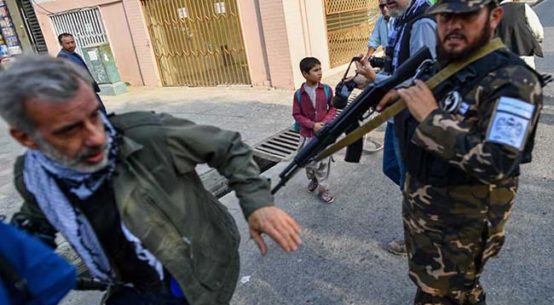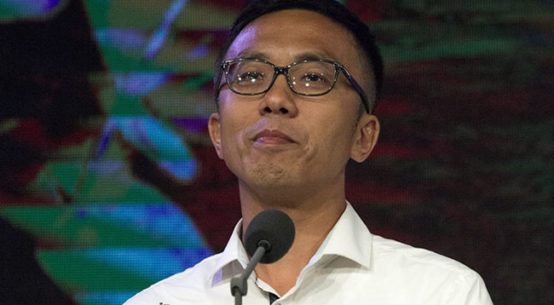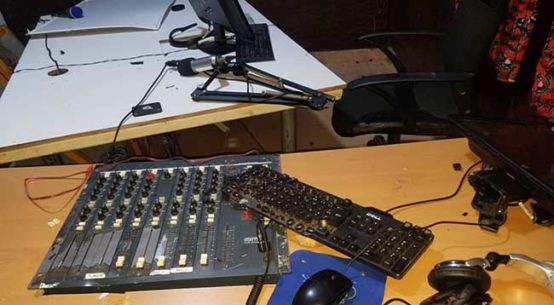
Media freedom remains threatened globally spurred by multiple arbitrary and restrictive factors with women identified as grossly disproportionate because of their sexual orientation, ethnicity and gender identity, a watchdog has observed.
Media freedom, espoused by practitioners globally as part of their democratic right as fourth estate continues sinking to its lowest ebb in recent years and is driven in part by anti-democracy and illiberal pressures and practices and the misuse of digital technologies to restrict space for their liberties to thrive.
Media Freedom Coalition, a partnership of countries working together to advocate for media freedom and safety of journalists and seeking to hold to account those who harm journalists for doing their job is concerned with the alarming restrictive laws and interference by authorities in various countries, a threat to media independence.
A communiqué issued after the Third Global Conference for Media Freedom, held from February 9 and 10, 2022 and hosted by Estonia and the Estonian Institute of Human Rights, the global campaigners for media freedom and the protection of journalists seek unconditional redress.
Challenges besetting practitioners include unduly restrictive laws, arbitrary and/or unlawful surveillance, censorship, undue interference in the circulation of information online and physical violence; these challenges are exacerbated by financial threats, which jeopardise media independence and sustainability.
Women journalists are vulnerable to the whim of the ‘media freedom violators’ and are disproportionately targeted by online harassment, threats, sexist hate speech and trolling.
It notes, in many instances, women journalists are subjected to multiple and intersecting forms of discrimination and gender based violence owing to their sexual orientation, race, disability, religion, ethnicity or gender identity, a threat to their professional ethical demands demanding independent news judgment.
“This can lead to self-censorship such that women choose to withdraw from the public sphere, which undermines media pluralism and democracy as a whole,” the communiqué stated.
Despite the shortcomings, the coalition, formed in July 2019 and also watches over public interest, remains steadfast in advocating for media freedom and liberties. It pledged to continue to improve media freedom and safety of the practitioners online and offline both at home and abroad.
As representatives of governments, the coalition is obliged to ensure that people in all its member states freely enjoy their human rights, while recognizing media freedom as a cornerstone of democracy.
The coalition reiterated its commitment made in the Global PLEDGE ON Media Freedom and reaffirmed its unwavering stance to speak out and take action together through combining forces to share information, as appropriate, and to take action in cases where journalists and media houses are at risk.
The coalition remains a shining light on violations and abuses of media freedom, bringing these to the attention of the global public and working towards accountability.
This is achievable by standing together to intervene at the highest level with the Governments of countries where media freedom remains at risk.
The idea is to show solidarity with countries that work to build media freedom; and by considering all available measures to address violations and abuses of international human rights law related to media freedom.
The coalition remains committed to increasing coordination locally through various diplomatic missions around the world, arguably to defend media freedom and to increase support for and engagement with journalists and independent media under threat.
“We support measures to tackle the precarious working conditions and poverty of journalists which undermine their independence.”
Australia, Argentina, Austria, Belize, Botswana, Bulgaria, Canada, Chile, Costa Rica, Croatia, Cyprus, the Czech Republic, Denmark, Estonia, Finland, France, Germany, Ghana, Greece, Guyana, Honduras, Iceland, Italy, Japan and Kosovo signed the statement.
Latvia, Lebanon, Lithuania, Luxembourg, Maldives, Montenegro, Netherlands, New Zealand, North Macedonia, Portugal, Korea, Serbia, Seychelles, Sierra Leone, Slovakia, Spain, Switzerland, Ukraine, United Kingdom, Uruguay and the United States also joined.
Canada co-chairs the 50-member Media Freedom Coalition. The formation of the coalition was officially launched in September 2019 on the margins of the UN General Assembly. Canada and Botswana co-hosted the Second Global Conference for Media Freedom in November a year later.




